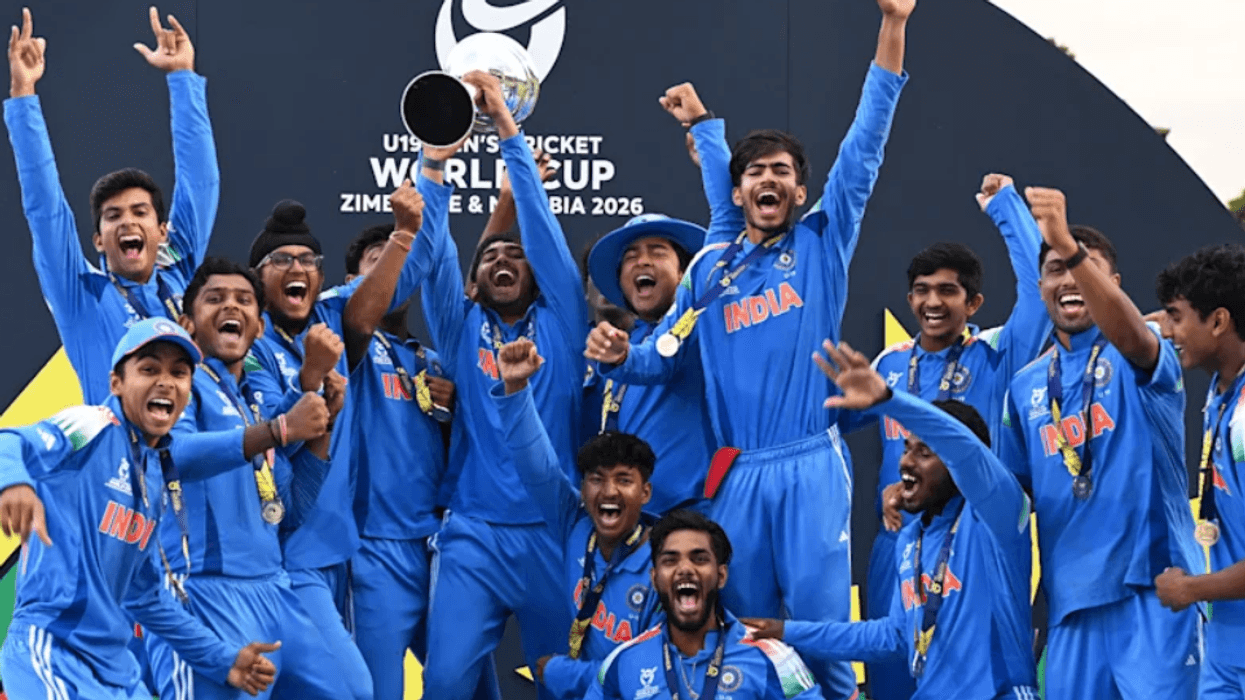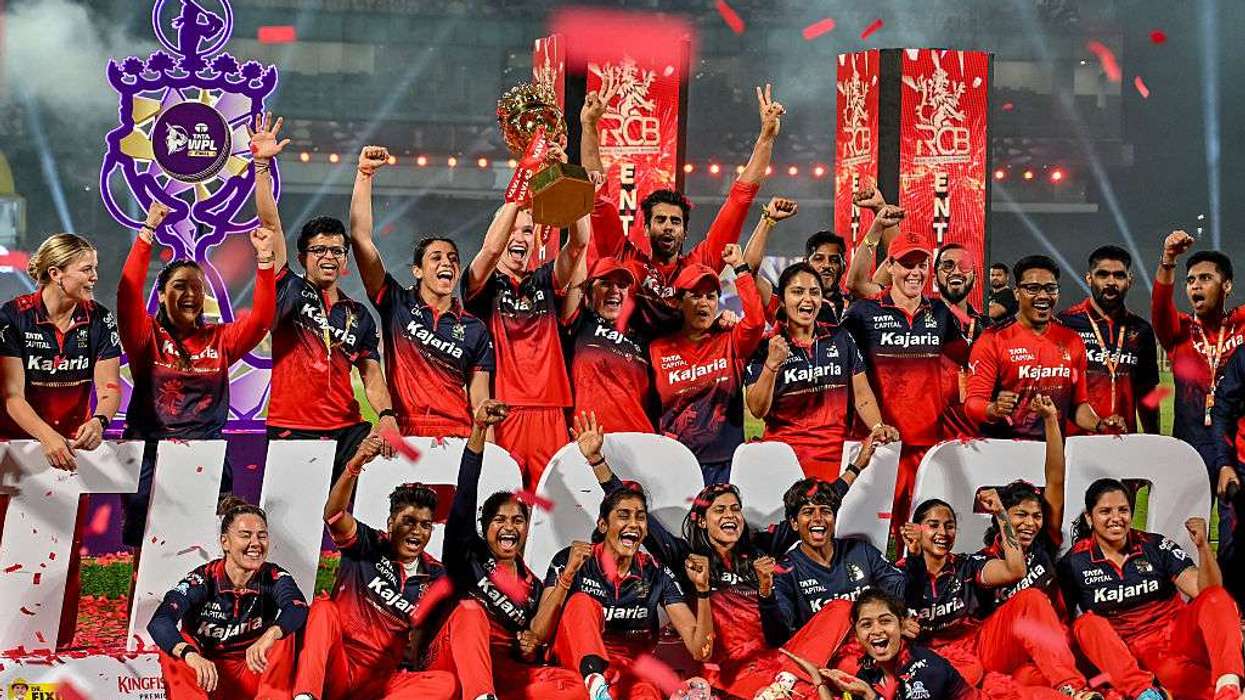Shabana was 18 years old when she was married to a man 15 years her senior, in the northern Indian state of Uttar Pradesh. It wasn't long before he began beating her.
Worried for her safety and that of her two young kids, Shabana begged her eldest brother to let her return to her parental home, where he now lived. He refused, saying her place was with her husband, and that she had no right over the home.
The home was claimed by her brothers. Under Islamic law, Shabana and her two sisters were also entitled to a share of the property, but they were not aware of it.
"My father had said he would leave me a share, but he did not leave a will, and I did not know I had a right," said Shabana, who asked that her last name not be used as she fears reprisal from her husband, who has refused a divorce.
"I thought I would have to live on the streets," she said, wiping off tears in the small beauty salon she runs to support herself and her children.
It wasn't until Shabana approached a local women's group, Association for Advocacy and Legal Initiatives (AALI), that she gained the knowledge - and the courage - to ask for her share.
It took four years of mediation by AALI before her brother allowed her to move into the house with her kids, she said.
Other Muslim women in the country are less fortunate.
Muslims are India's largest religious minority, making up more than 13 percent of the 1.2 billion population.
They are among the most excluded and marginalised communities, with social indicators such as education and employment lower than the national average.
In matters of inheritance, marriage, family and divorce, Muslims are governed by their personal law, or the shariah.
According to India's Shariah Act, women are entitled to half the man's share of property, but the rule does not apply to agricultural land.
Some states have made provisions in their law to allow Muslim women to inherit land as well.
PATRIARCHY RULES
Despite the law, it is local customs and traditions that determine inheritance rights for Muslim women across India. The customary laws are largely patriarchal and do not favour women.
"Challenging inheritance rights means challenging the patriarchy, challenging the very notions of family and relationships," said Niti Saxena, an advisor at AALI who has studied Muslim women's property rights in Uttar Pradesh.
Fathers and sons are not willing to give married women a share of the parental property because they believe she belongs to the husband's family, and that she has already been compensated with a dowry at the time of her marriage, she said.
"The women, even if aware of their rights, are afraid that claiming their share will spoil their relations with the family. So they do not make a claim unless they are desperate - usually in the case of abuse or a divorce."
Ownership of assets increases the value of a woman in the husband's household and reduces the violence she faces, a separate study by land rights advocacy group Landesa India showed.
But women asking for a share in property faced violence and harassment, it said.
A 2015 study by advocacy group Bharatiya Muslim Mahila Andolan (BMMA) - which did not include Uttar Pradesh - showed 82 percent of Muslim women do not own property.
Of those who owned property, most had got it from their husbands, with only a few inheriting from their fathers.
"The vast majority of these women are dependent on their husbands," said Zakia Soman, a co-founder of BMMA in Mumbai.
"If she has nowhere to go, and if her parents are unable or unwilling to support her, she has no choice but to put up with any violence or abuse from her husband," she said.
VIOLENCE
Uttar Pradesh, one of the poorest states in the country, is also the most unsafe for women, recording the most number of crimes against women in 2015, according to official data.
It wasn't always this way. Lucknow was the capital of the wealthy Awadh region ruled by a succession of Muslim nawabs.
The abolition of the "zamindari" system after India's independence did away with the system of wealthy landlords controlling poor farmers. But land was not distributed equally afterwards, with Muslims suffering the brunt of it.
Violent communal clashes in the state have also driven thousands of Muslims out of their villages and off their land.
Landlessness among the state's Muslims is higher than other religious communities, while even those who own land have smaller-than-average holdings.
Across religions, women are often denied their right to property in the deeply patriarchal state.
Uttar Pradesh does not make distinctions when it comes to property rights, a senior state official said.
"The state laws do not prohibit anyone from any religion or gender from inheriting land or property," said Arvind Kumar, in the state's revenue department.
'WHAT IS FAIR'
The Muslim personal law has been in the spotlight recently, with rising opposition to some of its diktats.
The Indian government told the Supreme Court this month polygamy and triple talaq - by which a Muslim man can divorce his wife by saying "talaq" thrice - deny Muslim women "the full enjoyment of fundamental rights under the Constitution".
The leader of the women's wing of the All India Muslim Personal Law Board - a charity that oversees the application of personal law - has said the community must ensure that women are granted property rights according to the Quran.
"If done properly, it can change the fate of Muslim women," said Asma Zahra.
But the community must go further and give women equal inheritance rights guaranteed in the constitution, said Soman at BMMA.
Shabana, who lives with her children in one room of her sprawling parental home under her brother's eye, agrees.
"We are not being greedy, we only want what is fair."
"I want my daughter to be independent. For that we must treat our daughters and sons as equals."



